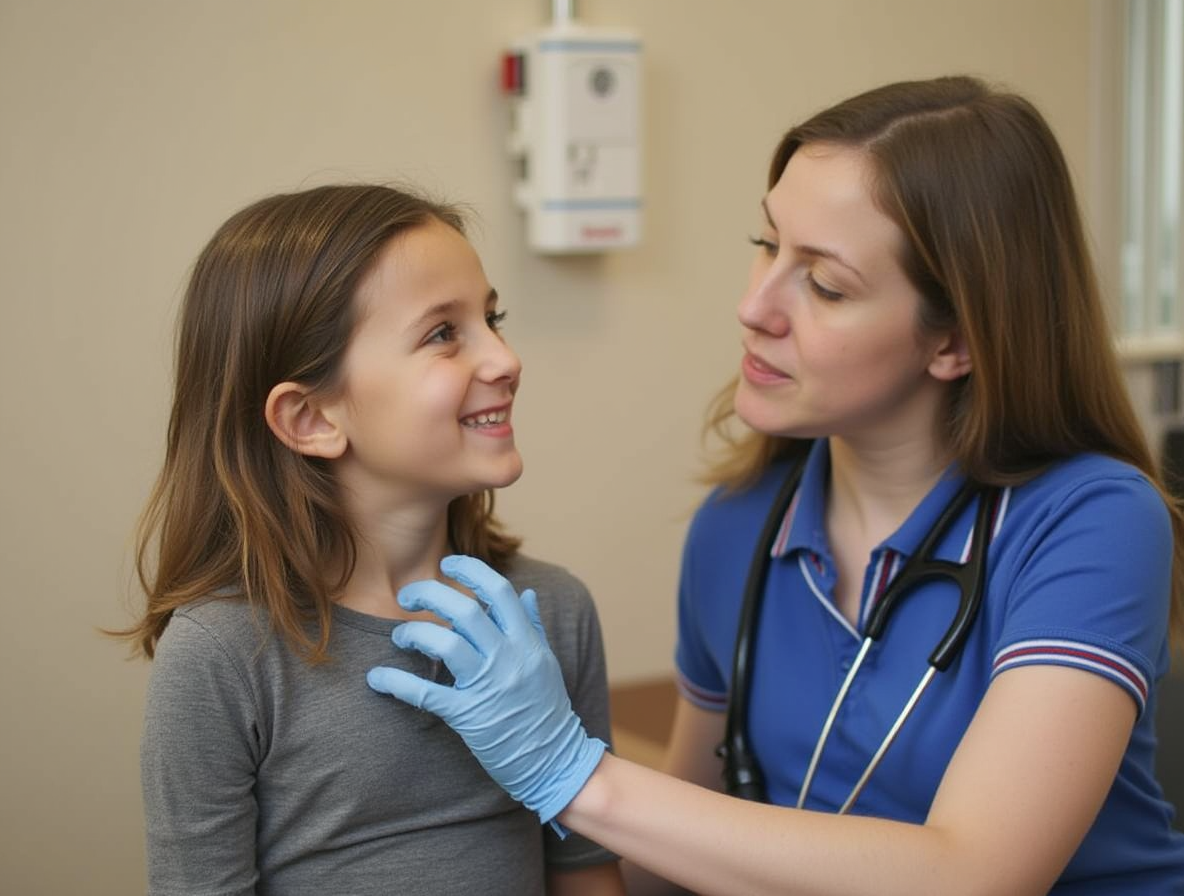Pertussis antibiotic treatment “Pertussis treatment and prevention: What you need to know”
As a parent or caregiver, you want to keep your loved ones safe from serious illnesses like pertussis, also known as whooping cough. This disease is very contagious and can be very dangerous for babies and young kids. You might wonder how to prevent and treat pertussis.
The good news is that antibiotics can help a lot. They can make the illness less severe. With the right medicine and prevention steps, you can keep your family safe.
Table of Contents
Understanding Pertussis: Symptoms and Early Signs
Pertussis, also known as whooping cough, is a contagious respiratory illness. It can affect people of all ages. The American Lung Association says that childhood immunization lowers the risk of getting pertussis. Also, vaccinating all infants can reduce cases by lowering the number of people exposed.
Symptoms of pertussis start 7 to 10 days after you’re exposed. They might seem like a cold at first. You might have a runny nose, sore throat, and a slight fever.
As the disease gets worse, you’ll have intense coughing fits. These can last several minutes and might be followed by vomiting. Sometimes, you’ll hear a “whoop” sound between coughs.
Understanding pertussis treatment is key. Antibiotics are often used to treat pertussis. The right antibiotic depends on the case. If you’re showing symptoms, see your doctor to find the best treatment.
Some important facts about pertussis include:
- Symptoms can last 2 to 3 months or longer, mainly in babies and young children.
- Coughing fits can happen more at night and can last months without treatment.
- Young infants under 6 months are at a high risk for serious complications from whooping cough.

Early diagnosis and treatment are crucial for managing pertussis. Knowing the symptoms and early signs helps protect you and your loved ones. Always follow treatment guidelines and talk to your doctor if you have symptoms or have been exposed to pertussis.
How Pertussis Spreads and Who’s at Risk
Pertussis, also known as whooping cough, is a contagious respiratory illness. It’s caused by the bacteria Bordetella pertussis. You can catch it by being close to someone who has it. Babies and pregnant women are more likely to get it.
The Centers for Disease Control and Prevention (CDC) suggest pertussis medication and pertussis treatment options. These help manage the disease and stop it from spreading.
People can spread pertussis from the start of symptoms to 2 weeks later. Antibiotic treatment for pertussis can shorten this time. Knowing how it spreads and who’s at risk helps prevent it. This includes getting vaccinated and using antibiotic treatment for pertussis.
To lower the risk of pertussis, getting vaccinated is key. The CDC advises everyone to get vaccinated against whooping cough. Pertussis medication and pertussis treatment options also play a role in managing and preventing the disease. By understanding pertussis, you can protect yourself and your family.
Getting Diagnosed: Tests and Procedures
If you think you or a family member has pertussis, getting a diagnosis quickly is key. The National Center for Immunization and Respiratory Diseases says tests like PCR and culture can help diagnose it. Pertussis antibiotic therapy is important for treatment, and antibiotics for pertussis can ease symptoms. The right best antibiotic for whooping cough depends on how severe the case is and the patient’s health.
To diagnose pertussis, doctors will do a physical exam, ask about your medical history, and run lab tests. The main tests for diagnosing pertussis are:
- PCR (polymerase chain reaction) test, which finds the bacteria’s genetic material
- Culture test, which grows the bacteria in a lab
- Serology test, which checks for antibodies against the bacteria
It’s important to know that PCR’s accuracy drops after 2 weeks of illness. This means getting tested early is crucial. Also, getting NP swabs or aspirates correctly is key for accurate results.
Understanding your test results is important for treatment. Your doctor will explain the results and suggest the best pertussis antibiotic therapy or antibiotics for pertussis to help you get better.
Pertussis Antibiotic Treatment Options
When treating pertussis, also known as whooping cough, antibiotic treatment is key. The American Lung Association says azithromycin, clarithromycin, and erythromycin are good choices. These whooping cough antibiotics work best if started early, within the first three weeks.
The aim of pertussis medication is to kill the bacteria causing the illness. This helps prevent serious problems and stops the spread of the disease. Remember, pertussis antibiotic treatment is not a complete fix. Rest and staying hydrated are also important.
Managing pertussis symptoms also involves other steps. Avoid over-the-counter cough medicines, as they can be useless or even dangerous. Instead, rest well, drink lots of water, and use a humidifier to ease congestion.
It’s also vital to know that pertussis medication can cause side effects. These might include nausea, diarrhea, or allergic reactions. If you notice any of these, talk to your doctor right away.
Preventing pertussis is crucial. The Advisory Committee on Immunization Practices (ACIP) suggests a booster shot for all adults. This is crucial for those around babies under 12 months. Vaccination and managing symptoms can lower your risk and stop the illness from spreading.
Managing Symptoms During Recovery
When you’re getting better from pertussis, it’s key to handle your symptoms well. This helps avoid serious problems and stops the disease from spreading. The CDC says it’s best to stay away from work or school and keep distance from others. Following pertussis treatment guidelines is important for a quick recovery.
Resting well, drinking lots of water, and using a humidifier can help with coughs. Knowing about pertussis treatment options is also important. This includes antibiotics for pertussis, which can make symptoms less severe and stop the disease from spreading.
Monitoring Treatment Progress
It’s crucial to watch how you’re doing with treatment. Keep an eye on your symptoms. If they get worse or you have trouble breathing, get help right away.
When to Contact Your Healthcare Provider
If your symptoms are bad or you’re worried about your treatment, call your doctor. They can tell you the best treatment and help with any problems.

Preventing Spread to Family Members
When a family member gets pertussis, acting fast is key to stop it from spreading. The National Center for Immunization and Respiratory Diseases says isolation and precautions can help. Pertussis medication, like antibiotics, is very important in stopping the spread.
Starting antibiotics early can make symptoms less severe and stop the spread. People with pertussis should stay home for five days after starting treatment. Family members and others exposed might also need antibiotics.
- Make sure all family members are up-to-date on pertussis shots.
- Practice good hygiene, like washing hands often and covering your mouth when coughing or sneezing.
- Stay away from the sick person, mainly during the first 5 days of treatment.
By following these steps and using antibiotics, you can stop pertussis from spreading to your family. This helps lower the risk of serious problems.
Vaccination: Your Primary Defense
Vaccination is key to fighting pertussis. It’s important to follow pertussis treatment guidelines to stop the disease from spreading. The American Lung Association says vaccines can prevent pertussis. Booster shots are needed throughout life to keep immunity strong. Using antibiotics for pertussis is also vital in treating it.
The Centers for Disease Control and Prevention (CDC) suggests DTaP vaccines for kids. Boosters are given at ages 15-18 months and 4-6 years. A Tdap shot is recommended for teens at 11-12 years old. Pregnant women should get Tdap during each pregnancy, best between 27 and 36 weeks.
It’s important to follow the vaccination schedule and pertussis treatment guidelines. This helps lower the risk of getting pertussis and stops it from spreading. Always talk to a healthcare professional about the best treatment and any concerns about antibiotics for pertussis.
Vaccination is a vital step in preventing pertussis. It’s crucial to keep up with the latest pertussis treatment guidelines and antibiotics for pertussis recommendations. By taking action to protect yourself and others, you can help stop pertussis from spreading and reduce serious complications.
Special Considerations for High-Risk Groups
Some groups face a higher risk of severe illness from pertussis. You might wonder who these groups are and how to protect them. The CDC says infants, pregnant women, and the elderly are at higher risk. They may need pertussis antibiotic treatment or whooping cough antibiotics to avoid serious problems.
For these high-risk groups, pertussis medication is key to reducing symptoms. The best time for treatment is within 1-2 weeks. It’s vital to follow the guidelines for pertussis antibiotic treatment. Infants under 1 year and pregnant women in their third trimester should be treated within 6 weeks of coughing.
- Infants under 1 month of age who receive macrolide antibiotics should be monitored for infantile hypertrophic pyloric stenosis (IHPS) and other serious adverse events.
- Pregnant women, specially those near term, should be treated with whooping cough antibiotics to prevent transmission to their newborns.
- Elderly patients and those with cardiac disease may be more susceptible to the effects of arrhythmogenic drugs on the QT interval.
By understanding these special considerations and taking the necessary precautions, you can help protect high-risk groups from severe pertussis illness. This ensures they get the pertussis medication they need to recover.
Conclusion: Taking Control of Pertussis Prevention and Treatment
Understanding pertussis treatment guidelines https://naturalnicehealth.com/ and antibiotics for pertussis can be tough. But, by being proactive, you can take control of pertussis prevention and treatment. It’s all about knowing the value of pertussis antibiotic therapy, getting vaccinated, and following the best practices to keep you and your loved ones safe.
Spotting the early signs of pertussis and getting medical help fast is key. Also, following your doctor’s pertussis treatment guidelines is important. By using a mix of vaccines, antibiotics, and stopping the disease from spreading, you can lower your risk a lot. Remember, pertussis is a serious disease. But with the right information and steps, you can protect yourself and your community.
FAQ
What are the symptoms of pertussis, and when should I seek medical attention?
Early signs of pertussis include a mild cough, runny nose, and sneezing. As it gets worse, the cough gets more severe, and you might hear a “whoop” sound. If you or your child has a persistent, severe cough, or if it’s hard to breathe, see a doctor right away.
How does pertussis spread, and who is at risk?
Pertussis spreads through the air when someone coughs or sneezes. It’s most dangerous for infants, young children, and the elderly because they can get very sick.
How is pertussis diagnosed, and what kind of testing is involved?
Doctors use tests like a nasopharyngeal swab or blood test to diagnose pertussis. These tests help find the bacteria and decide the best treatment.
What are the antibiotic treatment options for pertussis?
Antibiotics are key in treating pertussis. They can make the illness less severe and shorter. Doctors often use macrolides like azithromycin or clarithromycin, or other options like erythromycin or trimethoprim-sulfamethoxazole.
How can I manage the symptoms of pertussis during recovery?
Rest well, drink lots of water, and use cough medicines to feel better. Your doctor might suggest home care tips to help you or your child feel more comfortable.
How can I prevent the spread of pertussis to my family members?
Follow your doctor’s advice on isolation and practice good hygiene. Wash your hands often and cover your mouth when coughing or sneezing. Tell your close contacts so they can get medical help and possibly antibiotics.
How effective are pertussis vaccines, and how often do I need to get booster shots?
Vaccines are the best defense against pertussis. The DTaP vaccine is for kids, and the Tdap is for teens and adults. Even though vaccines work well, you need booster shots every 10 years to keep immunity strong.
Are there any special considerations for high-risk groups, such as infants, pregnant women, and the elderly?
Yes, infants, pregnant women, and the elderly face a higher risk of serious complications from pertussis. They might need extra precautions, special treatments, or close monitoring by their doctors.
Source Links
- https://www.cdhd.wa.gov/health/pertussis – Pertussis (Whooping Cough)
- https://www.shoremedicalcenter.org/news/whooping-cough-symptoms-treatment-and-prevention – Whooping Cough: Symptoms, Treatment, and Prevention
- https://www.amboss.com/us/knowledge/pertussis – Pertussis – Knowledge @ AMBOSS
- https://www.lung.org/lung-health-diseases/lung-disease-lookup/pertussis/symptoms-diagnosis – Pertussis Symptoms, Causes, and Risk Factors
- https://www.nhsinform.scot/illnesses-and-conditions/infections-and-poisoning/whooping-cough/ – Whooping cough
- https://www.cdc.gov/pertussis/about/index.html – About Whooping Cough
- https://www.nfid.org/infectious-disease/whooping-cough/ – Whooping Cough (Pertussis) – NFID
- https://www.chop.edu/conditions-diseases/pertussis-whooping-cough – Pertussis (Whooping Cough)
- https://www.cdc.gov/pertussis/php/laboratories/index.html – Laboratory Testing for Pertussis
- https://www.ncbi.nlm.nih.gov/books/NBK519008/ – Pertussis – StatPearls – NCBI Bookshelf
- https://www.lung.org/lung-health-diseases/lung-disease-lookup/pertussis/treatment – Diagnosing and Treating Pertussis
- https://my.clevelandclinic.org/health/diseases/15661-whooping-cough-pertussis – What Is Whooping Cough?
- https://emedicine.medscape.com/article/967268-treatment – Approach Considerations, Pharmacologic Therapy, Immunization
- https://www.healthychildren.org/English/health-issues/conditions/chest-lungs/Pages/Whooping-Cough.aspx – Whooping Cough (Pertussis): Symptoms, Treatment & Prevention
- https://www.immunize.org/wp-content/uploads/catg.d/p4212.pdf – Pertussis (Whooping Cough): Questions and Answers
- https://www.legacycommunityhealth.org/newsblog-protecting-families-from-pertussis-what-parents-and-guardians-need-to-know/ – Protecting Families from Pertussis: What Parents and Guardians Need to Know
- https://www.healthvermont.gov/disease-control/other-reportable-diseases/whooping-cough-pertussis – Whooping Cough (Pertussis) | Vermont Department of Health
- https://www.immunize.org/ask-experts/topic/pertussis/ – Ask The Experts About Vaccines: Pertussis | Immunize.org
- https://www.health.vic.gov.au/infectious-diseases/pertussis-whooping-cough – Pertussis (whooping cough)
- https://www.paho.org/en/topics/immunization/frequently-asked-questions-faqs-about-vaccination – Frequently Asked Questions (FAQs) about vaccination
- https://www.cdc.gov/pertussis/hcp/clinical-care/index.html – Treatment of Pertussis
- https://www.cdc.gov/pertussis/php/postexposure-prophylaxis/index.html – Postexposure Antimicrobial Prophylaxis
- https://www.cdc.gov/infection-control/hcp/healthcare-personnel-epidemiology-control/pertussis.html – Pertussis
- https://www.cdc.gov/pinkbook/hcp/table-of-contents/chapter-16-pertussis.html – Chapter 16: Pertussis

